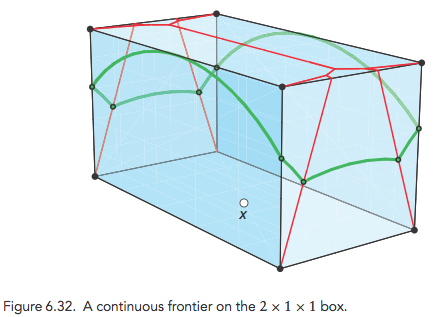If you will excuse me substituting a polyhedron for the Riemannian manifold
(imagine rounding the vertices),
this figure shows how the cut locus (red) from source $x$ is a tree.
(The green arcs are equidistant from $x$.)

(Figure from Discrete and Computational GeometryDiscrete and Computational Geometry)
Concerning, "What are the edges?": They are geodesics, such that there are two distinct shortest paths from $x$ to every interior point of an edge of the cut locus. Points of the cut locus of degree $k$ have $k$ distinct shortest paths from $x$.
